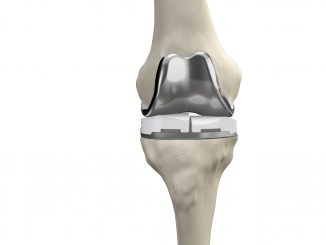
The impairment of cognitive function as a result of cancer diagnosis as well as of the oncological therapies administered is one of the most frequent and difficult to manage the symptoms that cancer survivors experience.
If clinical manifestations due to brain cancer or brain metastases of different types of cancers are common, more and more recent cognitive impairment is secondary to the diagnosis and treatment of various non-brain cancers. Non-brain cancers include various cancers such as:
- Breast cancers
- Colon cancers
- Prostate cancers as well
- Haematological disorders such as lymphomas and leukemias
However, regardless of the type of cancer, the impact of the cognitive function on the quality of life can be significant. The incidence of impaired cognitive function either by the cancer itself or by the treatments administered, is estimated between 75% for non-brain cancers and over 90% for non cerebral tumors. The cognitive impact may be present before oncological therapy in about 25% of cases and is probably due to the immunological response secondary to the presence of cancer.
Also, about 25% of cancer survivors may experience cognitive disorders up to 20 years after completing oncology therapy. Of course, the impairment of cognition can subsequently affect the social and professional life of patients, with significant difficulties of social reintegration.
How could the cognitive impact of cancer and subsequent therapies be explained?
It is well known that many chemotherapeutic agents can cross the blood-brain barrier and directly affect neuroprogens and oligodendrocytes. This can be highlighted on standard MRI examinations in the form of decreased brain volume in certain areas, such as the hippocampus. Apart from the potentially direct action, there is talk of an indirect action through the systemic release of various pro-inflammatory cytokines. Cytokines are those proteins that transmit information between different cells. Also, cytokines can be released directly from the brain by microglia, and can cause neuronal damage through oxidative stress.
In addition, cognitive impairment may be due to age, reduced hormone levels, decreased secondary neuronal oxygenation, anemia, anxiety or depression. These are just a few mechanisms possibly involved in impairing cognitive function.
However, there are still a number of questions regarding the specific causal mechanisms or risk factors related to the increase in the severity and duration of cognitive impairment in certain patients. While primitive or metastatic brain cancers are invariably associated with cognitive impairment, any advanced cancer may associate, in evolution, cognitive impairment possibly due to hypercalcemia, metabolic disorders, infections, or multiple organ failure.
At present, we speak of the cognitive reserve (high level of education, intelligence, etc.) as about a potential protective factor to affect cognition. It is very clear that patients with a high degree of intelligence face much better cognitive impairment than those with limited intelligence.
The clinical picture is polymorphic but in general the patients have a reduction of the capacity of ideation, difficulties of concentration, impairment of recent memory, difficulties in expression etc. Symptoms of impaired cognitive function in the case of brain tumors are due to tumor localization and different brain areas as well as the consecutive therapeutic procedures, whether we speak of ablative surgery, curative or palliative radiotherapy, especially in the case of whole-brain irradiation or chemotherapy whole-brain.
How do patients recover from the loss of cognitive funnction
The assessment of the degree of cognitive impairment is difficult when the measuring instruments are limited and questionable, and its management is also difficult. The management procedures are both pharmacological and non-pharmacological.



Leave a Reply